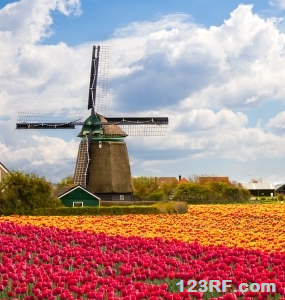“The Land of the Free” is a phrase that’s been heard and used countless times to describe America. The line, of course, originates from the stirring lyrics of our national anthem, “The Star-Spangled Banner”. But for many of us, the phrase has become imbued with cruel irony – we Americans have seen much of our freedom erode over time, and particularly within the last few years.
No one needs to remind us of how much we have lost. Between the NSA’s snooping activities and the Feds meddling with nearly every aspect of our lives, America has come to resemble a Fascist dictatorship more than the beacon of freedom it once was.
So how does America stack up in comparison to other countries in terms of overall freedom? In some ways, that’s a difficult question to answer, simply because the word freedom can be interpreted in so many different ways.
As real freedom continues to evaporate in the US, many have already relocated and many more are thinking about leaving. Would you consider moving abroad – especially if things deteriorate further in the US, or if there were an economic collapse?
What would you look for in a new home elsewhere? Let’s see what it’s really like to live in different countries abroad, compared to living in America.
As an American citizen who has lived abroad for most of the last decade, I’ve had a chance to observe first-hand what it’s like to live in several other countries and how they differ from our homeland. And I have met many Americans who have moved to Europe in search of a better environment for themselves and their families.
For instance, I know organic farmers who have settled in various countries to escape the Monsanto-dominated agricultural reality in the States – many European countries are GMO-free.
I also know many who have chosen to raise their families in places where life is safer overall and where the quality of education is much higher. Many of the Americans I know who have resettled abroad are currently happy and thriving. Others decided after months or years that they preferred life back home.
What About Europe?
I’ve visited mainly European countries, both Western and Eastern — Holland, France, Bulgaria, Romania, but many other places in Europe, and have had the chance to get a taste of what daily life is like in at least a dozen different nations.
Although every country has its own laws and customs, there are a few things in common that seem to differ from the States. One of the most surprising – and perhaps most telling – differences I have witnessed is the lack of police presence in most of the places I’ve lived and visited – and I mean that in a good way.
As I was born and raised in US, one thing I can say about Texas – especially after getting a broader perspective from traveling in and out of the US – is that in many ways it resembles a police state. Between the run-for-profit prison system, which rewards those in charge of incarcerating people, and the pervasive presence of local police forces, sheriff’s departments, the Texas Highway Patrol, Texas Rangers and the Border Patrol (not to mention all the other Federal authorities creeping around in the background), Texas has become a somewhat terrifying and oppressive place to live.
The state of Texas is a somewhat extreme example, but from my experience – and I’ve also traveled in at least 40 states – the US has become a nation of cops and criminals. If you’re not a cop, you’re probably a criminal – or at least a potential one – in the authorities’ eyes. And the strange thing is that America is actually a very dangerous place to live compared to almost any European country.
Aside from petty criminals and pickpockets, European cities are much less dangerous than those in America (I was the victim of thieves in a Brussels train station once – these criminals were around ten years old and stole my laptop while I turned my back for a second – but that’s the only time I’ve had a problem in ten years of living and traveling here).

When I first moved to Europe, I lived in Holland, and one of the things I witnessed a few days after arriving in Amsterdam was a local arguing with a cop over a parking ticket he had just put on her car.
It was very interesting to me because the body language of the policeman and the woman was the complete opposite of what you would expect in a similar situation in the States.
It was obvious that the woman had no fear of having her head slammed onto the hood of the car and being handcuffed – as often happens in the US when someone makes the mistake of arguing vehemently with a cop – and it was also obvious that the policeman felt an obligation to listen to what the woman had to say. It was as if the cop understood that he was merely a servant of the people who pay his salary!
In all fairness, Dutch police are among the least corrupt in Europe, but in general, I have been able to live all over Europe without fearing that I will be harassed or intimidated by police on a random and regular basis, which is a lot more than I can say for America – particularly Texas.
If you choose to stay and fight for the rights and liberties that have been stripped from you, I salute you and support your efforts. And, of course, many could never bear to leave their extended families, friends and the way of life they are accustomed to. But I would also ask you to understand those who would prefer to seek a different sort of life elsewhere – in places where children can grow up in a safer environment with better schools, and where personal freedoms still exist, at least in relative terms. And what if your survival actually depended on leaving?
Safer Locations Abroad
Another reason to consider living elsewhere is protection from natural and man-made disasters. The US is subject to extreme weather – tornadoes, hurricanes, etc. Much of the West Coast is in danger of serious damage from earthquakes, not to mention the effects of radiation from the Fukushima disaster.
Many places in Europe and elsewhere offer relative safety from these types of threats compared to the US.
And, as I mentioned above, many would like to escape the poisonous effects of GMOs and other problems modern Americans face, such as the overmedication of children and the influence of Big Pharma, enforced vaccinations, junk food culture, etc.
Let’s start a debate on these and any other aspects of relocating abroad. I welcome your input and look forward to some lively discussions.






grintch | May 31, 2014
|
Too many foreigners over there.
tom | May 31, 2014
|
Bull shit. Lets stay right here and fight.
Edith Gaylord | May 31, 2014
|
I’ve lived in a number of states, and I thank God that I finally made the move to Texas.
It sounds like East Texas must be a lot different than the rest of the state — or maybe that’s just your personal experience. I hope I never have to live in any other state.
Also, in Texas, you get buy/sell/use all the guns you want. In Europe, you do not. In many other states, you do not.
This is a survival blog, and I cannot imagine trying to survive catastrophic circumstances or the fall of society without firearms. If you don’t have a gun when catastrophe strikes, you’ll be low man on the totem pole when it comes to surviving.
duggy dugg | June 1, 2014
|
when the dollar and the other currencies go to zero or near zero value ..all nation states will become war zones..jungle law will be in effect…. no place will be better than any other ….north korea and china own their own central banks …i.e. no bankstard is ruining their economies but would you like to live in no korea or china?
america has the best chance of recovery since we have the best land and resources. look up cuba on y/t ..they have rebuilt their economy …people are not starving or going begging in cuba ….if they can microfarm and make 50 year old cars run like new …so can we ….
Pingback:Relocating Abroad: Is It an Option for You? | TheSurvivalPlaceBlog | June 3, 2014
|
Bird | July 3, 2014
|
My family has actually been considering leaving the states…. it’s beginning to look more like Germany in the 30’s and 40’s. Does anyone have information about Ecuador? I really don’t see Europe coping much better than they did during WWII and NOBODY seems to be interested in South America! Some cities are prospering and modernizing , but my husband and I are looking for a more rural setting with a little land for farming. We’d love to hear from anyone with actual knowledge and any information that can be provided.
grintch | July 4, 2014
|
What is specifically wrong with South America?
Fred | July 4, 2014
|
Have already purchased ONE WAY tickets for the Wife & I to Manila, Philippines for a bit later in the year and are in the process of downsizing to travel there. She is a filipino and lived there during the Martial Law era of the Marcos Regime. I have been there numerous times and to various parts of the Country and it reminds me of what it must have been here in the western US in the late 1800s. There the Govt is corrupt and everybody admits it versus here where the Govt is corrupt but they still think they are the best thing going. Fred
Fred | July 4, 2014
|
I might add that I fully agree with Bird about this Country resembling very closely what was going on in Germany. Almost seems to me that they are using that as a game plan. Fred
Pingback:Bugging Out: Three Things That Can Save Your Live | July 21, 2014
|
Pingback:Before Bugging Out-Three Things That Might Save Your Life - Survival Life | Preppers | Survival Gear | Blog - Survival Life | Preppers | Survival Gear | Blog | August 1, 2014
|
Pingback:3 Things That Might Save Your Life Before Bugging Out | December 26, 2014
|
Pingback:Relocating: 7 Things To Be Aware Of When Buying Landdisasterdefense.usdisasterdefense.us | disasterdefense.us | June 1, 2015
|
ASRA | September 10, 2015
|
This article is older but I just read it . I have 2 homes one in Las Vegas which you can imagine will suck if the SHTF and one in the Philippines. Both have unique challenges in prepping for long term survival offgrid. Nevada yu do have access to everything to prepare but extreme desert environment while more remote all hell would break lose in Las Vegas quickly. While the Philippines is a 3rd world country it has nearly all modern perks. It is located on the equator line so its hot and humid as hell, rains quite enough to have water. The cities are old and doomed if unprepared to leave. The Provinces out side Manila are farmable and the people themselves have lived through martial law and are still skilled traders and farmers. Guns are necessary for hunting and home protection in both places but acquiring a shotgun. rifle and 4×4 is a lot more trouble but worth the time. 6 million Americans live abroad and a few of us are stocking up at our 2nd homes as well.
Pingback:Relocating: 7 Things To Be Aware Of When Buying Land | Survivopedia | March 11, 2016
|